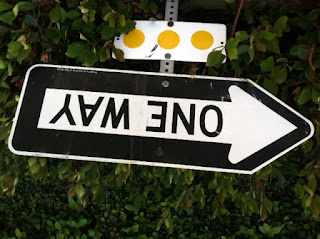If you want to truly understand something, try to change it. ~Kurt Lewin
Alberto Villoldo, anthropologist, believes we are moving into possibility. He has studied the healing practices of the Amazonian and Incan shamanism for 25 years. Villoldo says, "You can only change the world by changing your inner life.”
It sounds so simple but takes discipline and dedication to make progress in changing inner lives.
Price Pritchett feels, "Change always comes bearing gifts." If you made three recommendations for change in your inner life what would they include?
Search for three gifts today. Begin by writing the ideals. You might start with: self-respect, responsibility, reciprocity. Write into each of your chosen words to show examples of how you might accomplish them.



































